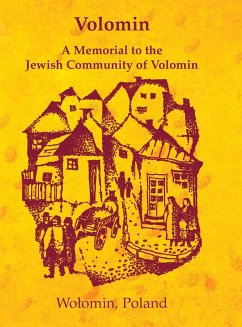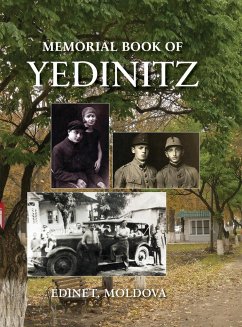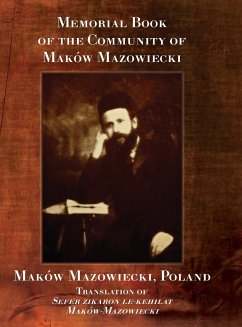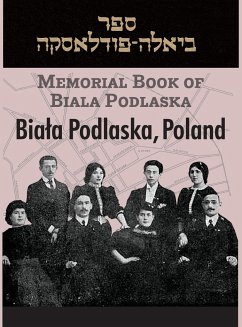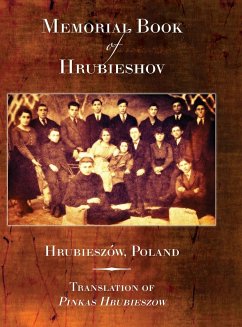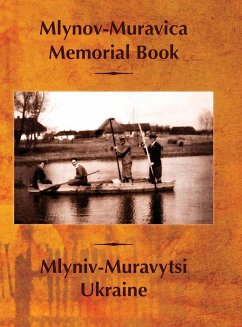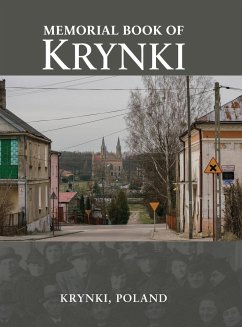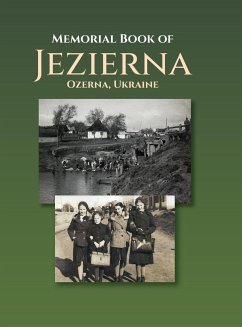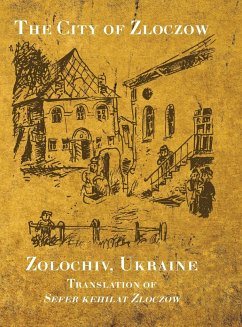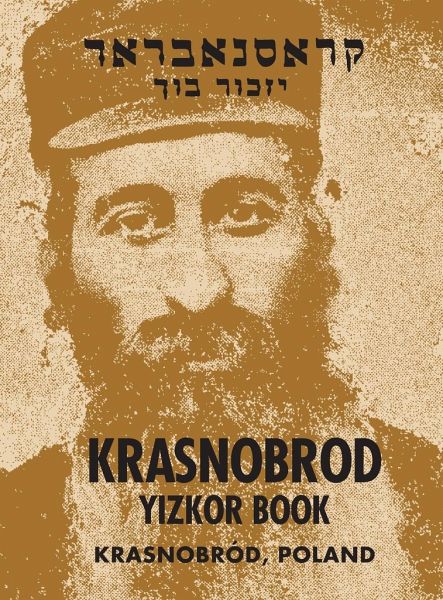
Krasnobrod; A Memorial to the Jewish Community
Versandkostenfrei!
Versandfertig in 1-2 Wochen
36,99 €
inkl. MwSt.

PAYBACK Punkte
18 °P sammeln!
BEFORE WORLD WAR I, there were about 400 Jewish families in Krasnobród. To this we must add some tens of Jewish families living in the surrounding villages who were in every way like the Jews of the shtetl. Among them were scholars, Chasidim, and simple warm-hearted Jewish folk. They participated in shtetl society along with everyone else. Their children either studied in town, or they brought the best melamdim and teachers to them. All the folk tales and jokes about illiterate villagers did not apply to the Jews around our shtetl. They came as equals, and brought the finest presents and dona...
BEFORE WORLD WAR I, there were about 400 Jewish families in Krasnobród. To this we must add some tens of Jewish families living in the surrounding villages who were in every way like the Jews of the shtetl. Among them were scholars, Chasidim, and simple warm-hearted Jewish folk. They participated in shtetl society along with everyone else. Their children either studied in town, or they brought the best melamdim and teachers to them. All the folk tales and jokes about illiterate villagers did not apply to the Jews around our shtetl. They came as equals, and brought the finest presents and donations. They occupied important leadership roles along with the important men of the shtetl. I remember that every Rosh Hashana they would leave their well-established homes and come to town in wagons fully loaded with packs. Everyone already had a place to stay for the holidays. You could feel the love that Jews had for one another, and the holiday peace that pervaded the shtetl. It is certainly possible that today, when we evoke the memories of our shtetl, everything seems brighter, more beautiful. It's possible that today we see only good things, cherished stories, true brotherhood and love among Jews - and it's possible that we are not inclined now to see the negative sides which there undoubtedly were of our shtetl Jewish life. Nevertheless, we know that life was brighter, that beauty shone from Jewish life and filled us with faith and meaning that were the foundation of our lives. Up until World War I, there was not a Jewish boy who had shaved his beard. There was hardly any difference in appearance or dress among the various social classes. After a day of work and trade, everyone went to his beit hamidrash, and the melodies of those studying rang through the town. At dawn, the shammes woke the shtetl for Avoydes Haboyre, knocking three times on every Jewish door, and not missing anyone. On Shabbos and the holidays, when the whole town's Jews dressed in their Shabbos clothes, the women in their Jewelry, and everyone going to daven, one could really feel the holy spirit entering every little Jewish corner. When a rebbe came to visit, the celebration was tremendous.Goyim passing by would listen with envy to the zmiros singing that came from every Jewish home. On summer Saturdays, the women would sit outside their homes and loudly read together the Tsene Rene. He



